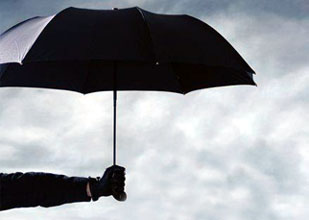|
|
| Help | |
| You are here: Rediff Home » India » Get Ahead » Money » Manage |
|
| |||||||||||||||||||||||
|
| |||||||||||||||||||||||
 nsurance is a vague game.
nsurance is a vague game.
You assume that tragedy is going to hit (though you don't want it to) and so you pay the insurance company an amount. In return, they promise to help you out financially if your nightmare does come to pass, which you sincerely hope and pray doesn't.
Ironically, if the tragedy does occur, you (or your family) gain from the policy. If it does not, you lose. And the entire policy turns out to be a waste of hard-earned money.
Yet it is a must. But, where you can be smart is by picking the right insurance cover.
If you are in your twenties, either single or newly married, then a term insurance policy is your best bet.
 How it works
How it works
What you are expected to do
All you have to do a pay a premium.
Premium refers to the amount you will have to pay the insurance company. This could be a one-time payment or a periodic, annual payment.
What the insurance company is expected to do
The company will cover you for the amount you are insured.
So, if you have taken a term insurance policy for Rs 10,00,000, then should you die, this is what the insurance company has to pay up.
Who benefits?
The beneficiary. This refers to the person/ s you have named in the policy; they are the ones who will get your insurance money.
The good and bad about term insurance
Term insurance is the purest and simplest form of life insurance.
You pay the company a premium for a certain number of years. Should you die during this time, the beneficiary gets the money.
Should you live, which is very good, you will lose all the premiums paid. And, you get no money at all.
Let's say you take a policy for 30 years. If you are fortunate and outlive your policy -- which, we're sure, you would really love to do -- the investment will turn out to be quite worthless and you will lose all the money you paid.
If you do not outlive your policy (which would be a tragedy), the people you nominate in it will get the money.
In the first scenario, you pay; you get nothing; your beneficiary gets nothing.
In the second scenario, you pay; you get nothing; your beneficiary does.
Either way, you personally do not benefit.
That's the bad part about term insurance.
The good part about term insurance is that it is the cheapest life insurance available, so you pay the least amount of premiums.
What you should know
1. If you have absolutely no dependent family (parents, spouse, children), then there is no need to opt for this policy. But, if you do have a family or dependents, term insurance is a must. No other policy will offer you as much value for money as this one.
2. Do not think of it as an investment. Look at it purely as an insurance tool and a safety net for your family. Should something happen to you, your family (wife, children or parents) will get a fair amount of money in hand.
3. If you opt for other forms of insurance where you are assured of your money being returned to you, the premium is much higher. And, to avoid paying such a high premium, there is the risk that you may opt for a lower cover and hence be underinsured.
4. Term insurance should be bought at a young age. The older you get, the higher the premium. The trick is to buy it at a young age for a lesser premium and for the maximum possible tenure.
5. You can opt for a single-premium term policy or a regular premium term policy. The former would definitely be more convenient but the latter would be a better option. The financial load is much less when paying a regular premium every year rather than a huge lumpsum at one go.
6. You can even opt for riders on your policy. These are optional add-ons which can be attached to the main insurance policy for an additional premium.
This additional premium is added to the main premium and has to be paid along with it.
For instance, a double accident benefit rider means that if you die in an accident, your family gets double the sum assured in your main policy. So if your cover is Rs 20 lakh (Rs 2 million), they get Rs 40 lakh (Rs 4 milion). Or, a critical illness benefit rider will cover specified illnesses like cancer or a heart attack. There is also a disability benefit rider where you get a specified income till the end of your policy should you become permanently disabled.
7. Premiums will vary between companies. So do take a look at a few before you make up your mind. But, don't make the lowest premium your sole criteria. Also, look at the features of the policy.
Also check out all options available. For example, some companies offer a separate term plan for non-tobacco users. Others, a special rebate for female lives insured.
Term insurance should form a part of your portfolio. But ensure that you do your homework and get a good deal.
|
|
| © 2008 Rediff.com India Limited. All Rights Reserved. Disclaimer | Feedback |